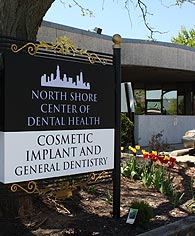 |


POST-SURGICAL INSTRUCTIONS-PERIODONTAL
ACTIVITY: After leaving our dental office today, we suggest you consider relaxing or al least limiting your activity as much as possible for the remainder of the day. Avoid strenuous activity and aerobic exercise for the first 24 hours.
DISCOMFORT: Some discomfort may be present when the anesthesia wears off, you have bean given a prescription for an anti-inflammatory (NSAID) analgesic. This drug will greatly decrease the possibility of post-surgical swelling and pain and has been shown to accelerate healing. After the first 5 days, 2 Tylenol, or 2 Advil taken every 4-6 hours as needed, should keep you comfortable. Should intense discomfort occur at any time after the surgery, please take the narcotic medication (if one has been prescribed for you), as directed, or telephone the doctor and he will phone in a narcotic prescription for you. You may take both the narcotic and NSAID together. Their analgesic effect will be synergistic.
INFECTION: if you have been given an antibiotic please continue taking it, one tablet every 5-6 hours, or three time per day until all of the tablets have been taken. If you notice that after a few days, pain or swelling is increasing or that you ere experiencing an elevated temperature please cell the doctor.
SWELLING: It is normal for some swelling to occur after surgery, particularly in the lower jaw. To minimize swelling after surgery, apply an ice bag wrapped in a light tea towel or handkerchief to the outside of your face over the operated area. This should be left on your face for about 20 minutes, then removed for 20 minutes, or alternated from side-to-side, between operated areas, for 2-3 hours after surgery. The use of both ice and the NSAID analgesic as described above will reduce the amount and duration of facial swelling.
BLEEDING: It is common to have slight bleeding for a few hours following periodontal surgery. If bleeding persists, apply a tea bag to the surgical site with firm but gentle pressure for 15-20 minutes. Let yourself rest for 15 minutes then repeat the application of the tea bag for a second time, if you still have slight bleeding. If excessive bleeding continues, please call our office. Remember, most of the blood you may see in your mouth is actually a little bit of blood mixed with a lot of saliva. Blood is a very strong "dye" and a little bit of blood will color your saliva dramatically.
ORAL HYGIENE: Brushing and oral hygiene procedures should be done as usual in all untreated areas. In operated areas limit your oral hygiene to brushing using a soft bristled toothbrush. Avoid dental flossing in operated areas during the first week following surgery. The exposed operated areas should be gently swabbed with a Q-tip (cotton tipped applicator) saturated with Peridex (Chlorhexidine) as a last oral hygiene procedure at bedtime and again in the morning, after eating and drinking.
EATING AND DRINKING: Do not try to eat until all anesthesia (numbness) has worn off. High protein foods and liquids are desirable for 3-6 days following surgery. Semi-solid foods may be eaten as long as this may be done comfortably. Eggs, custard, yogurt pasta, steamed vegetables, casseroles; cooked cereals are some things that you might consider eating during the first few days following your surgery. Avoid spicy, salty, acidic, very hot or very cold foods or liquids. Also, avoid nuts, chips or other crunchy or fibrous foods which may become caught between your teeth. Please refrain from drinking alcoholic beverages the day of surgery.
|
|

9350 Waukegan Road
Morton Grove, IL 60053
847.470.0850
nscdh@smilesforyou.com
|






